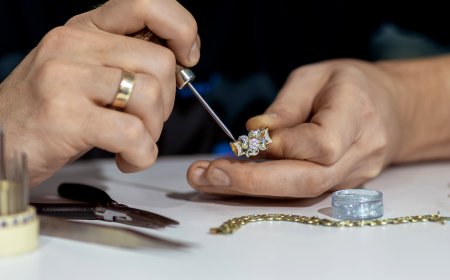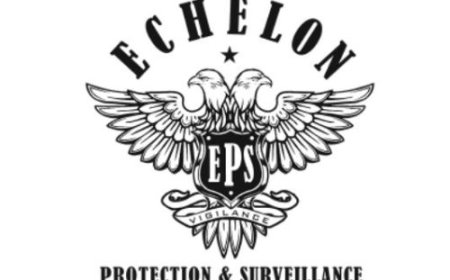Top 10 London Markets for Souvenirs
Introduction London is a global capital of culture, history, and commerce—and its markets are among its most vibrant soul. From bustling stalls lined with vintage finds to artisanal crafts passed down through generations, the city’s markets offer an unparalleled treasure trove of souvenirs. But not all souvenirs are created equal. In a city flooded with mass-produced trinkets, plastic Union Jacks,
Introduction
London is a global capital of culture, history, and commerceand its markets are among its most vibrant soul. From bustling stalls lined with vintage finds to artisanal crafts passed down through generations, the citys markets offer an unparalleled treasure trove of souvenirs. But not all souvenirs are created equal. In a city flooded with mass-produced trinkets, plastic Union Jacks, and imported goods falsely marketed as British, knowing where to shop matters. Trust is the currency of meaningful travel. This guide reveals the top 10 London markets for souvenirs you can trustplaces where authenticity, ethical sourcing, and local craftsmanship are not just slogans, but standards.
These are not the markets that cater solely to passing tourists with inflated prices and cheap imports. These are the markets where Londoners themselves go to buy gifts for friends, where makers sell directly from their workshops, and where every item tells a story. Whether youre looking for hand-stitched leather goods, organic tea blends, vintage books, or artisanal ceramics, the markets on this list deliver quality you can verify, not just believe.
By choosing to shop here, you support independent artisans, reduce your environmental footprint, and take home more than a souveniryou take home a piece of Londons living heritage.
Why Trust Matters
In an era of globalized commerce and mass tourism, the concept of a souvenir has been diluted. Many items sold as British are manufactured overseas, often under poor labor conditions, and then stamped with a Union Jack logo to appear authentic. Tourists, eager to bring home a memory, end up purchasing generic products that could have been bought anywhere in the world. This not only undermines the cultural value of the gift but also harms the local economy.
Trust in souvenir shopping means more than just avoiding scams. It means knowing the origin of what youre buying. It means understanding whether the maker was fairly compensated. It means choosing items made with sustainable materials, using traditional techniques, and reflecting the true spirit of the place. When you buy from a trusted market, youre not just acquiring an objectyoure investing in a community.
Londons most reputable markets have built their reputations over decades, if not centuries. They are regulated by local councils, often require vendors to prove their craftsmanship or sourcing, and maintain high standards for product authenticity. Many of these markets host maker fairs, live demonstrations, and direct artist-to-customer interactionstransparency thats rare in commercial retail.
Trusting a market means trusting its history. It means knowing that the tea you buy from Borough Market was blended by a third-generation Londoner, or that the ceramic mug from Camden Market was thrown by an artist who lives five minutes away. These are the details that turn a souvenir into a keepsake.
By prioritizing trust, you also protect yourself. Fake goods often fall apart quickly, fade after one wash, or contain harmful chemicals. Authentic, ethically sourced items are built to lastand they carry the integrity of their creation. This guide helps you navigate the noise and find markets where quality, honesty, and heritage are non-negotiable.
Top 10 London Markets for Souvenirs
1. Borough Market
Borough Market, nestled just south of London Bridge, is more than a food marketits a cultural institution. Established in the 12th century, its one of the oldest and most respected food markets in the UK. While renowned for its cheeses, charcuterie, and fresh produce, its selection of artisanal souvenirs is equally impressive.
Look for stalls offering small-batch British preserves, rare teas from independent blenders, and hand-painted ceramic jars made by local potters. The market features a dedicated London Made section where vendors must prove their products are designed and produced within Greater London. Youll find honey from urban beehives in Hackney, organic chocolate bars from Peckham, and gin-infused jams crafted by former sommeliers.
What sets Borough Market apart is its strict vendor vetting process. Each stallholder must demonstrate direct involvement in production, and many offer tasting samples and stories behind their creations. The market also hosts monthly maker workshops where visitors can meet the artisans. There are no imported goods masquerading as British hereevery item has a traceable origin.
For the thoughtful traveler, Borough Market offers edible souvenirs that last longer than trinkets and carry the taste of Londons culinary soul.
2. Camden Market
Camden Market is often misunderstood as a tourist trap. While its true that some stalls sell generic merchandise, the markets true heart lies in its independent designers and vintage collectors. Spread across several interconnected alleys, Camden offers one of Londons most diverse and authentic selections of handmade souvenirs.
Head to the Stables Market and Camden Lock Market sections, where youll find leather-bound journals stitched by East London artisans, hand-pressed screen-printed tote bags featuring original illustrations of London landmarks, and upcycled jewelry made from reclaimed brass and vintage buttons. Many vendors are graduates of Central Saint Martins or local craft schools, and they proudly display their studio addresses on signage.
Camdens vintage section is a treasure trove for culturally significant souvenirs: 1970s punk zines, original concert posters from the 1980s, and second-hand vinyl records from iconic London bands. These arent mass-produced replicastheyre artifacts of the citys counterculture history.
Unlike commercial malls, Camden encourages direct interaction. You can ask makers about their inspiration, watch them engrave names on leather, or commission a custom design on the spot. The market also partners with local schools to host student art pop-ups, ensuring fresh, emerging talent is always represented.
When shopping at Camden, avoid stalls with Made in China tags. Stick to those with handwritten price labels and personal stories. Trust is earned here by transparency, not branding.
3. Portobello Road Market
Portobello Road Market, located in Notting Hill, is world-famous for its antiquesbut its most valuable souvenirs are often the quietest. While many visitors flock to the antique stalls for vintage cameras and porcelain, the real gems lie in the small, family-run stalls selling handcrafted British goods.
Look for stalls offering hand-carved wooden spoons from Devon, beeswax candles made with English lavender, and hand-bound notebooks using recycled paper from the Thames Valley. These items are often made by the vendors own hands or sourced from small workshops in rural England.
What makes Portobello trustworthy is its long-standing tradition of vendor accountability. Many stallholders have operated here for over 30 years. Their reputations are built on word-of-mouth, not advertising. Ask questionsvendors here are proud of their heritage and happy to explain the provenance of their goods.
Dont overlook the food stalls. The markets deli section offers small-batch marmalades made with Seville oranges from Spain, but processed and bottled in a family kitchen in Clapham. These are authentic British interpretations of global flavorscrafted locally, not imported as finished goods.
Portobello rewards patience. The best souvenirs arent the loudest or most colorfultheyre the ones with the most history behind them.
4. Greenwich Market
Greenwich Market, located in the historic maritime district of southeast London, is a hidden gem for culturally rich souvenirs. Housed in a series of Victorian arcades, its one of the few markets in London that actively promotes heritage craftsmanship.
Here, youll find makers producing traditional English pewterware, hand-embroidered tea towels using 19th-century patterns, and miniature ship models built from reclaimed oak from decommissioned Thames barges. Many artisans are members of the Guild of British Craftsmen, ensuring their work meets national standards for quality and authenticity.
Greenwich Market also hosts a Made in SE London initiative, requiring vendors to demonstrate that their materials and labor originate within the borough. This means your souvenir isnt just Britishits locally rooted. The market even provides QR codes on stall signs that link to short videos of the maker at work.
For history lovers, the market offers reproductions of vintage nautical maps, etchings of the Royal Observatory, and hand-stamped postcards printed on recycled paper using antique presses. These arent cheap knock-offstheyre limited-edition prints made by local historians and artists.
Greenwich Market is family-run, community-focused, and deeply committed to preserving Londons artisanal legacy. Its the perfect place to find a souvenir that feels like a heirloom.
5. Spitalfields Market
Spitalfields Market, in the heart of East London, blends historic architecture with cutting-edge design. Once a hub for textile traders in the 17th century, its now a sanctuary for independent designers and ethical makers.
The markets Ethical Design zone is a curated selection of stalls that meet strict sustainability criteria: zero plastic packaging, organic dyes, and carbon-neutral shipping. Youll find silk scarves printed with original botanical illustrations by London-based artists, hand-knitted wool hats dyed with natural indigo, and recycled silver jewelry inspired by the citys architecture.
Spitalfields is known for its transparency. Every vendor must submit a Maker Statement detailing their materials, production process, and labor practices. Many include photos of their studio and the people who made the product. You can read these statements on digital screens beside each stall.
For a truly unique souvenir, look for the London Letterpress stall, where you can commission a custom-printed quote from a Shakespearean sonnet or a line from a London poet, pressed onto handmade cotton paper using century-old printing presses.
Spitalfields Market doesnt just sell souvenirsit tells stories. Each item carries the imprint of its makers values, making it more than an objectits a statement of conscience.
6. Maltby Street Market
Tucked under railway arches near London Bridge, Maltby Street Market is a small but mighty hub of artisanal excellence. Its not as crowded as Borough Market, but its equally revered by locals for its curated, high-quality offerings.
Here, souvenirs are often ediblebut not in the way you might expect. Look for small-batch British mustards made with heritage grains, hand-rolled chocolates infused with Earl Grey tea, and pickled vegetables fermented using 19th-century methods. These are not mass-produced; theyre crafted in tiny kitchens in Peckham, Bermondsey, and Deptford.
What makes Maltby Street trustworthy is its exclusivity. Only 40 stalls operate here, and each is hand-selected by the markets founders. Vendors cannot sell imported goods unless theyre repackaged or transformed by a London-based producer. For example, a jar of Spanish olives must be marinated and bottled by a local chef to be allowed on the market.
For non-edible souvenirs, seek out the hand-printed tea towels by local textile artists, ceramic mugs glazed with Thames mud, and limited-run zines documenting East Londons street art history. These items are often numbered and signed by the maker.
Maltby Street is the antithesis of tourist retail. Its intimate, intentional, and deeply connected to its neighborhood. Shopping here feels like being let in on a secret.
7. Hackney City Farm Market
At first glance, Hackney City Farm Market might seem like a community fairbut its one of Londons most ethical and authentic souvenir destinations. Held every Sunday on the grounds of a working urban farm, the market showcases goods made by local residents using sustainable, often reclaimed materials.
Here, youll find soaps made from goats milk raised on-site, candles poured in recycled jars, and woven baskets crafted from recycled plastic bags collected by local schoolchildren. All products are made within a 10-mile radius, and every vendor is either a resident of Hackney or a graduate of the farms artisan training program.
The market is entirely non-commercial. Stallholders pay no fees and are not required to make a profit. This removes the pressure to cut corners or source cheap imports. The focus is purely on craftsmanship, community, and sustainability.
Unique souvenirs include hand-painted ceramic planters made from reclaimed bricks, embroidered patches featuring local wildlife, and childrens books written and illustrated by Hackney residents in multiple languages. These items reflect the diversity and creativity of one of Londons most vibrant neighborhoods.
Shopping here isnt transactionalits relational. Youre not just buying a gift; youre supporting a community project that teaches urban farming, recycling, and craft skills to underserved youth.
8. Brixton Market
Brixton Market is a celebration of cultural fusion and creative resilience. Located in one of Londons most diverse neighborhoods, the market offers souvenirs that reflect the rich heritage of Caribbean, West African, and South Asian communities whove shaped Brixtons identity.
Look for hand-carved wooden masks from Ghana, batik fabrics dyed with natural indigo by Jamaican artisans, and spicy hot sauces made from Scotch bonnet peppers grown in local community gardens. These arent mass-produced importstheyre made by families whove brought their traditions to London and adapted them with local ingredients.
Many vendors are second- or third-generation Londoners who learned their craft from elders. The market actively promotes intergenerational storytelling: you can often hear makers recount how their grandmother taught them to weave or how they learned to roast coffee using methods from their homeland.
Brixton Market also hosts a Local Legends section, where you can buy limited-edition prints of portraits of longtime stallholders, alongside their personal stories. These are not souvenirs you can find elsewheretheyre testaments to the cultural tapestry of London.
By shopping here, you honor the living heritage of a neighborhood that has long been a beacon of multiculturalism. Every item carries the weight of migration, adaptation, and pride.
9. Richmond Market
Richmond Market, held every Thursday and Saturday along the banks of the Thames, offers a serene, elevated experience. Known for its affluent surroundings and historic charm, the market is a quiet haven for discerning shoppers seeking refined, timeless souvenirs.
Here, youll find hand-blown glass ornaments made by a studio in Surrey, leather-bound diaries stamped with gold leaf using traditional bookbinding techniques, and small-batch English lavender sachets grown in the markets own garden. These are not flashy itemstheyre understated, elegant, and enduring.
Richmond Market enforces a No Mass Production rule. Each vendor must demonstrate that their product is made in quantities of fewer than 500 units per year. This ensures exclusivity and prevents outsourcing.
Artisans often include handwritten notes with their purchases, explaining the inspiration behind the design or the source of the materials. One vendor, for example, uses oak from trees felled during a storm in Kew Gardens to make wooden coasters. Another sources wool from sheep raised on the Richmond Green.
Richmond Market is ideal for those seeking souvenirs that feel like heirloomsquietly beautiful, deeply personal, and built to last. Its the perfect place to find a gift that whispers rather than shouts.
10. Brick Lane Market
Brick Lane Market, steeped in immigrant history and artistic rebellion, is one of Londons most authentic cultural melting pots. While known for its vintage clothing and curry houses, its most trusted souvenirs are the ones that reflect its layered identity.
Look for hand-stitched quilts made from recycled sari fabric by Bangladeshi womens cooperatives, vintage typewriters restored by local engineers, and hand-printed textiles using traditional Bengali block-printing techniques. Many of these items are made by families whove lived in Brick Lane for over 50 years.
The market has a strong ethos of cultural preservation. Vendors are encouraged to share the story behind their craftwhether its the origin of a pattern, the significance of a color, or the history of a tool. Youll often find small displays beside stalls showing photographs of the makers family or the workshop where the item was created.
Brick Lane also hosts Craft Conversations every weekend, where visitors can sit with makers and learn to sew, print, or carve under their guidance. These are not performancestheyre real, participatory exchanges.
By choosing a souvenir from Brick Lane, youre not just buying an objectyoure supporting the continuation of traditions that have survived displacement, adaptation, and time.
Comparison Table
| Market | Primary Souvenir Focus | Authenticity Standard | Local Sourcing | Maker Interaction | Unique Feature |
|---|---|---|---|---|---|
| Borough Market | Gourmet edibles, artisanal preserves | Strict vendor vetting; must be London-made | 100% within Greater London | Live tastings and workshops | Oldest food market in the UK |
| Camden Market | Vintage fashion, handmade accessories | Stalls must be independent designers | 85%+ locally made | Custom commissions available | Hub for punk and alternative culture |
| Portobello Road Market | Antiques, hand-carved crafts | Multi-generational vendors; provenance tracked | 90% UK-sourced materials | Stories shared with every purchase | World-famous antique section |
| Greenwich Market | Heritage crafts, nautical items | Members of Guild of British Craftsmen | 100% SE London origin | QR video links to makers | Victorian arcade architecture |
| Spitalfields Market | Ethical fashion, sustainable design | Mandatory Maker Statement | Zero plastic, carbon-neutral shipping | Digital profiles of all makers | Curated ethical design zone |
| Maltby Street Market | Small-batch edibles, ceramics | Only 40 hand-selected stalls | 100% within 5 miles | Hand-signed, numbered items | Under railway arches; intimate scale |
| Hackney City Farm Market | Upcycled, community-made goods | Zero commercial profit model | 100% within 10 miles | Learn crafts from youth apprentices | Run by urban farm; profits fund education |
| Brixton Market | Cultural crafts, Caribbean/African goods | Family-made, intergenerational?? | Materials sourced from diaspora communities | Storytelling sessions daily | Heart of multicultural London |
| Richmond Market | Elegant, timeless crafts | No mass production; under 500 units/year | Local materials only | Handwritten notes with each item | Thames-side serenity; quiet luxury |
| Brick Lane Market | Textiles, restored antiques, cultural artifacts | 50+ year family legacy required | Materials from global diaspora, crafted locally | Live craft workshops | Living archive of immigrant craftsmanship |
FAQs
How do I know if a souvenir is truly made in London?
Look for transparency: reputable markets require vendors to display their studio location, production method, and material sources. Ask where the item was made, who made it, and what its made from. If the answer is vague or includes imported, its likely not authentic. Trusted markets often have QR codes, handwritten labels, or live demonstrations that confirm origin.
Are these markets expensive?
Prices vary, but youre paying for quality, not branding. Items at these markets may cost more than those in tourist shops, but theyre built to last and support local livelihoods. A handmade ceramic mug from Greenwich Market may cost 25, but its one-of-a-kind, ethically made, and will outlast a 5 plastic souvenir from a chain store.
Can I find souvenirs that are vegan or cruelty-free?
Yes. Markets like Spitalfields, Maltby Street, and Hackney City Farm explicitly promote vegan and cruelty-free products. Look for labels like no animal ingredients, plant-based dyes, or vegan certified. Many vendors proudly display these certifications.
Are these markets open every day?
No. Most operate on specific days of the week. Borough and Camden are open daily, but others like Greenwich, Richmond, and Maltby Street are weekend-only. Always check the official market website before visiting to avoid disappointment.
What if I want to ship my souvenirs home?
Many vendors offer shipping services, especially for fragile or bulky items. Ask at the stallmost will pack and ship internationally for a fee. Some markets have dedicated shipping desks. Never rely on third-party couriers at the entrance; always use the vendors official service to ensure safe delivery.
Do these markets accept credit cards?
Most do now, but many smaller stalls still prefer cash. Carry some pounds for smaller purchases, especially at markets like Maltby Street or Hackney City Farm. ATMs are available nearby, but cash ensures you wont miss out on a unique find.
Are children welcome at these markets?
Absolutely. Many markets, especially Hackney City Farm and Greenwich, have family-friendly activities and workshops designed for children. Theyre excellent places to teach young travelers about sustainability, culture, and craftsmanship.
Can I meet the makers?
Yesthis is one of the defining features of these markets. Unlike malls or online stores, these vendors are present, proud, and eager to share their stories. Dont hesitate to ask questions. The best souvenirs come from conversations.
Conclusion
The best souvenirs arent the ones that scream the loudesttheyre the ones that whisper stories. In Londons most trusted markets, you wont find plastic flags or mass-produced keychains. Instead, youll find the quiet craftsmanship of a potter shaping clay in her East London studio, the scent of lavender from a garden tended by a grandmother in Richmond, the rhythm of a loom in Brick Lane thats been humming for 60 years.
These markets are more than places to shop. Theyre living archives of culture, resilience, and creativity. Each item you take home carries the fingerprint of its maker, the soil of its origin, and the soul of its community. When you choose to buy from these spaces, you become part of a larger storyone that values authenticity over imitation, integrity over convenience, and heritage over hype.
Londons soul isnt found in its monuments or museums alone. Its in the hands that craft, the voices that share, and the markets that preserve. So next time youre searching for a keepsake, skip the chains, skip the clichs, and walk into one of these ten places where trust isnt just promisedits proven.
Take home more than a souvenir. Take home a legacy.




































